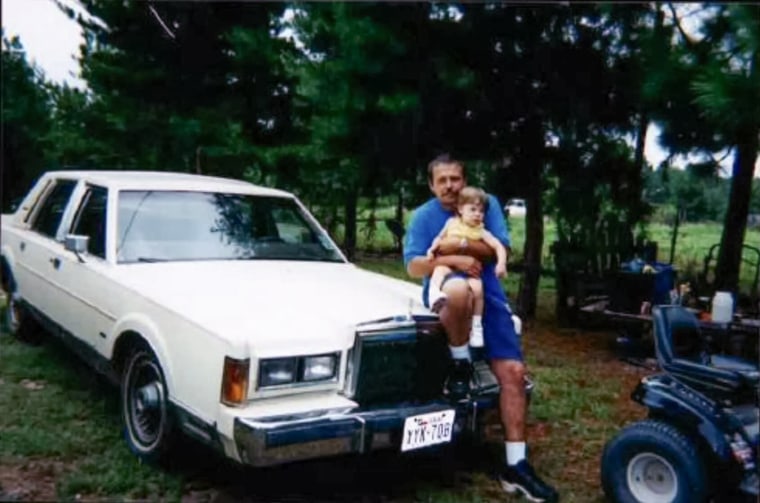The Texas Supreme Court has ruled against lawmakers who used their subpoena power to halt the execution of a death row inmate for his daughter’s “shaken baby” death, paving the way for it to proceed.
Robert Roberson, 58, was set to be questioned by the House Criminal Jurisprudence Committee, which issued a legislative subpoena last month for him to testify about his case — setting off a flurry of litigation that temporarily stopped his Oct. 17 execution with only hours to spare.
“Categorically prioritizing a legislative subpoena over a scheduled execution, in other words, would become a potent legal tool that could be wielded not just to obtain necessary testimony but to forestall an execution,” the Texas Supreme Court said in its ruling Friday.

But the high court justices went on to say that the committee can still seek to interview Roberson “so long as a subpoena issues in a way that does not inevitably block a scheduled execution,” adding that “nothing in our holding prevents the committee from pursuing judicial relief in the ordinary way to compel a witness testimony.”
The House committee’s use of a subpoena to compel Roberson to testify in person was an unprecedented legal gambit. Some lawmakers noted it would help buy more time for Roberson, whose cause has bipartisan support.
Committee Chairman Joe Moody, a Democrat, and committee member Jeff Leach, a Republican, responded that they did not expect their subpoena to necessarily stop Roberson’s execution for good, but said the state Supreme Court’s ruling does not prevent them from still attempting to gather his testimony.
“The Supreme Court strongly reinforced our belief that our Committee can indeed obtain Mr. Roberson’s testimony and made clear that it expects the Executive Branch of government to accommodate us in doing so,” Moody and Leach said in a statement.
The lawmakers had issued their subpoena for Roberson to testify in his case as it relates to a 2013 “junk science” law that allows Texas inmates to potentially challenge convictions based on advances in forensic science.
But the Office of the Attorney General quickly appealed the subpoena, which was supported by a district court judge’s temporary injunction that halted Roberson’s execution. After the state’s highest criminal court agreed with the attorney general’s office, allowing Roberson’s execution to continue, lawmakers then petitioned their case to the Texas Supreme Court.
The high court, which is currently made up of nine Republican elected justices, ultimately agreed to a halting of the execution, although it did not specify for how long as a separation-of-powers issue continued to be litigated through the courts.
The lawmakers and Attorney General Ken Paxton also sparred in public over the issue, with each accusing the other of “misrepresenting” Roberson’s case and releasing their own reports and rebuttals of claims.
Roberson, who is set to become the first person in the U.S. executed in a “shaken baby” case, has maintained his innocence in his 2-year-old daughter Nikki’s 2002 death.
At the time, doctors and law enforcement quickly concluded she was killed as a result of a violent shaking episode, leading to his conviction at trial, but Roberson’s defense says new understanding of so-called shaken baby syndrome shows that other medical conditions can be factors in a child’s death, as they believe it was in Nikki’s.
But the attorney general’s office said last month that state lawmakers have “attempted to mislead the public by falsely claiming that Roberson was unfairly convicted through ‘junk science’ concerning ‘shaken baby syndrome.'”
Roberson’s defense team initially sought to have him transported from his prison north of Houston to Texas’ capital of Austin to be interviewed by the House committee, but lawmakers instead wanted to gather his testimony from where he is incarcerated.
The attorney general’s office did not immediately comment about the state Supreme Court’s ruling, and it’s unclear whether it will allow for Roberson to testify or when it may seek a new death warrant.
Gretchen Sween, Roberson’s lawyer, said she is hopeful the state will work with the lawmakers to still allow for Roberson to testify.
“The ancillary benefit to Mr. Roberson of staying his execution hopefully gives time for those with power to address a grave wrong to see what is apparent to anyone who gives the medical evidence fair consideration: his daughter Nikki’s death was a tragedy not a crime; Robert is innocent,” Sween said in a statement. “Given the overwhelming new evidence of innocence, we ask the State of Texas to refrain from setting a new execution date.”